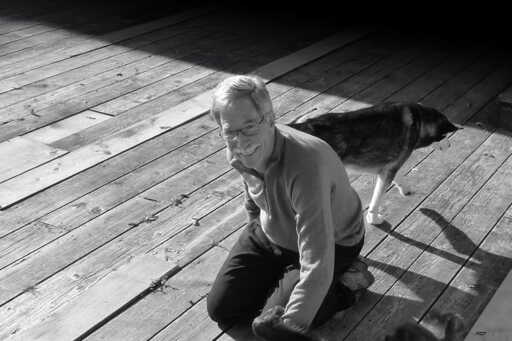He never raised his voice in anger. When talks grew tense—whether across a union bargaining table or a forest-policy summit—Chris Allnutt would grow quieter. The softer he spoke, colleagues recalled, the more certain everyone became that something important was about to happen. He did not trade in bluster or slogans. His power lay in patience, in the long habit of listening before replying, and in the conviction that dignity and justice were not ideals to be demanded, but conditions to be negotiated into being. Chris Allnutt at a HEU protest. That habit had been forged in British Columbia’s labor movement. Allnutt joined the Hospital Employees’ Union in 1989 as a researcher and rose to become its leader in the 1990s, representing tens of thousands of hospital workers—many of them immigrant women—through the province’s turbulent privatization drives. When the newly elected Liberal government tore up contracts and laid off staff, he defied orders to return to work, calling the strike “a fight for justice.” It cost him his job. Years later, the Supreme Court of Canada ruled that the government’s actions had violated constitutional rights, vindicating the position for which he had been punished. He said little about the verdict, beyond his pride in the members who had stood firm. “I love HEU members,” he told an interviewer. “They knew what they had to do.” For him, leadership was an act of service. His colleagues remembered how he would share credit and absorb blame, and how he mentored younger organizers—especially women—to…This article was originally published on Mongabay
From Conservation news via this RSS feed


